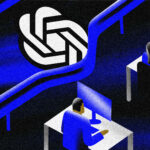Global Courant 2023-05-30 21:17:07
Serbian tennis legend Novak Djokovic sparked political controversy at the French Open on Monday after he wrote a message about Kosovo on a camera lens following his first-round victory.
“Kosovo is the heart of Serbia. Stop the violence,” Djokovic wrote in Serbian.
Here’s more about the rising tensions between Serbia and Kosovo that Djokovic was referring to.
What’s the latest news on the ground?
Dozens of NATO troops captured a municipal building in the Kosovo town of Zvečan on Tuesday after 30 NATO soldiers and 52 Serb protesters were injured in clashes the previous day.
NATO has 3,700 peacekeepers in Kosovo, the remainder of an original force of 50,000 deployed in 1999.
Police said in a statement that the situation is “fragile but calm” even though Serb protesters vandalized two journalists’ cars in the Kosovo town of Leposavic on Tuesday.
On Monday, there are more clashes near the municipal building in Zvecan, northern Kosovo. NATO said on Tuesday that more troops would be sent to Kosovo to help restore order. (AFP/Getty Images)
The situation fuels fears of a repeat of the 1998-1999 conflict in Kosovo, which claimed more than 10,000 lives and left more than a million homeless.
Kosovo President Vjosa Osmani said criminal gangs backed by Serbian President Aleksandar Vucic are out to destabilize Kosovo and the entire region. Vucic blames Kosovo authorities for causing trouble by installing new mayors despite the non-participation of the masses.
Is there a deeper conflict?
The dispute over Kosovo is centuries old. Serbia cherishes the region as the heart of its state, pointing to a battle in 1389 with the Ottoman Turks. Also, there are numerous medieval Serbian Orthodox Christian monasteries in Kosovo.
The ethnic Albanians in Kosovo regard Kosovo as their country and accuse Serbia of occupation and oppression. Ethnic Albanian fighters started an uprising in 1998 to end Serbian rule. Belgrade’s ruthless response prompted NATO to intervene and Serbia withdrew with international peacekeepers.
Kosovo declared independence in 2008, recognized by more than 100 countries, but not by Russia or China.
Ethnic Albanians make up more than 90 percent of Kosovo’s population. Ethnic Serbs represent only 5 percent of the population of 1.8 million, but are heavily concentrated in the north near Serbia and have long demanded the implementation of a 2013 EU-brokered agreement to create an association of autonomous municipalities in their area.
About 50,000 Serbian minorities refuse to recognize Kosovar state institutions, receive their wages and benefits from the Serbian budget, and do not pay taxes to either Pristina or Belgrade.
Why now?
Tensions had been rising for months over a dispute that began over car license plates.
For years, Kosovo has wanted Serbs in the north to replace their Serbian license plates with those issued by the Kosovo government in the capital, Pristina. Last July, Pristina announced a two-month period for the record change, which caused unrest. Following EU crisis mediation, the government later agreed to move the implementation date to the end of 2023.
Ethnic Serb mayors in northern municipalities, along with local judges and 600 police officers, resigned in November in protest of the impending switch.
In April elections that were boycotted by most Serbs, ethnic Albanian candidates won the mayorship in four Serb-majority municipalities – Leposavic, North Mitrovica, Zubin Potok and Zvečan – with an overall turnout of just 3.5 percent.
How is the reaction outside the Western Balkans?
EU foreign policy chief Josep Borrell on Tuesday urged the leaders of Kosovo and Serbia to enter into a dialogue.
“We already have too much violence in Europe today, we cannot afford another conflict,” Borrell said in Brussels.
A Kosovo Serb reacts as NATO soldiers stand guard in front of the congregation in the town of Leposavic on Monday. (Valdrin Xhemaj/Reuters)
Russia, which has blocked the United Nations bid for Kosovo, said on Tuesday that “decisive steps” were needed to de-escalate tensions.
“We call on the West to finally silence its false propaganda and stop blaming incidents in Kosovo on desperate Serbs, who are peaceful, unarmed and trying to defend their legitimate rights and freedoms.” said the Russian Foreign Ministry.
The US, along with France, Italy, Germany and Britain, have called on both sides to de-escalate tensions, but also jointly noted with concern “Serbia’s decision to raise the readiness level of its armed forces on the border with Kosovo.”
We have our travel advice for pic.twitter.com.com/Dwrdly5uxx
What is Djokovic’s connection?
Djokovic’s father, Srdjan, grew up in Zvečan.
The 22-time Grand Slam winner said after Monday’s win that “as the son of a man born in Kosovo, I feel the need to support our people,” referring to the Serbs.
“My position is clear: I am against wars, violence and any form of conflict, as I have always stated publicly,” he added. “I sympathize with all people, but the situation with Kosovo is a precedent in international law.”
Djokovic wrote: “Kosovo is the heart of Serbia! Stop Violence’ on camera after his win today at
The French organizers declined to comment, except that there were “no official Grand Slam rules about what players can or can’t say”.
Djokovic has been a lightning rod for controversy before. He was defending his father at the Australian Open in January when a video emerged of Srdjan Djokovic posing with some fans holding Russian flags during the war in Ukraine.
Djokovic also rejected tournament requirements for COVID-19 vaccination after tennis returned from the peak of the pandemic.







